- »All is broken in the night« Berlin, 2024
- »Fear of Fear« Mexico City, 2023
- Group Exhibition »To Light, Shadow and Dust« Berlin, 2022
- »How fast shall we sing« Stockholm, 2022
- »A House Is A House« Berlin, 2019
- »Two-Thirds Pleasure« Stockholm, 2018
-
Karolina Modig: Frida Orupabo – Den motvilliga konstnären, Dagens Nyheter, August 2024
-
Fi Churchman: Frida Orupabo, ArtReview, May 2023
-
Legacy Russell: here I am: The Internet of Frida Orupabo. In: Catalogue for "How did you feel when you come out of the wilderness" at Konsthall Trondheim, Sternberg Press, 2021
-
Arthur Jafa: Some Very Preliminary Thoughts on the Work of Frida Orupabo, Missylanyus and Ming Smith. In: Arthur Jafa. A Series of utterly improbable, yet extraordinary renditions. Moderna Museet, Stockholm, 2019
-
Johanne Nordby Wernø: Frida Orupabo and Arthur Jafa, Artforum, Critic's Pick, April 2019
-
Michael Hierholzer: Das Prinzip Collage, FAZ, Sept 28, 2019
-
CHART De-centred 2020: A Conversation Between Zoé Whitley and Frida Orupabo
-
Frida Sandström: Frida Orupabo – Ingen ursprunglig kropp, Kunstkritikk, August 2018
-
Portia Malatjiemay: Openings: Frida Orupabo, Artforum, May 2023
-
Cahiers d'Art: Arthur Jafa: 43rd Year, Conversation between Arthur Jafa and Frida Orupabo, 2018
-
Jareh Das: New Readings, New Meanings: Frida Orupabo interviewed by Jareh Das, Bomb Magazine, July 2020
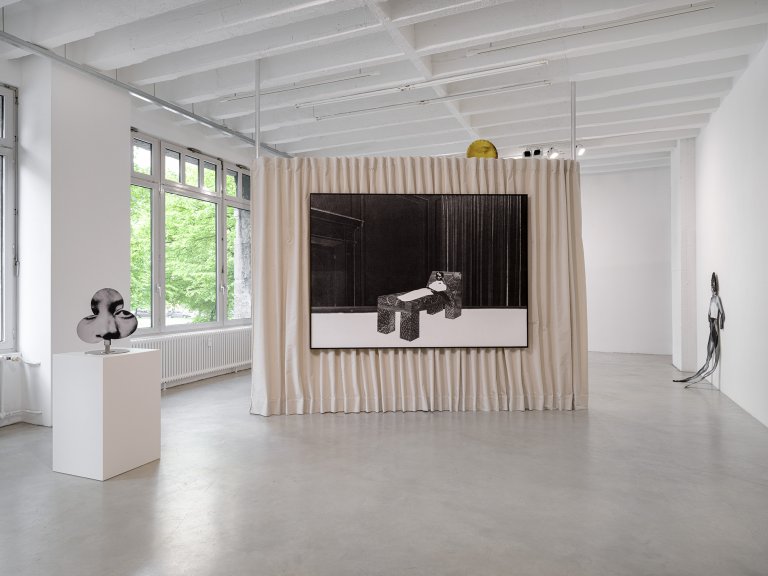
Installation view
Frida Orupabo »All is broken in the night«
Berlin, April 27, 2024 - August 03, 2024
Opening: April 26, 6–9pm
Gallery weekend special opening hours:
Saturday April 27, 11 am – 7 pm
Sunday April 28, 11 am – 6 pm
The exhibition was extended until August 3.
In her second solo exhibition at Galerie Nordenhake in Berlin, Frida Orupabo presents a new body of large-format prints, collages and sculptures, staged in two spatial room installations. Orupabo engages with archival practices and a therein lying power of images and speculation, that forcefully reflects onto questions of race, gender, identity, sexuality, the gaze and colonial violence.
Leveraging the vast spaces of the internet, Orupabo cuts, reassembles and layers found images to form collages as transformed bodies and contexts. Trained as a sociologist, the artist first started collecting and presenting a carefully crafted personal archive via her Instagram account @nemiepeba in the early 2010s, while employed at a centre for human trafficking and sex workers. Beginning with the family archive, the finds quickly expanded to include colonial archives as well as pop cultural contexts, some of which bear witness to the violence, racialisation and sexualisation of Black people. The artist creates her own narratives by way of manipulating an archival reality to oppose the lack of Black representation. Similar to how the cut-outs in the collage 'Inferno' appear peephole-like, the freestanding sculpture 'On my Hands and Knees' shows parts of a face as a three-leaf clover of the playing card colour cross. A shape that is also reminiscent of a keyhole. For Orupabo, ‘to create work that looks back at the viewer is a way to refuse to be made into an object, and to say, ‘I see you’.’ By experimenting with different modes of seeing and unseeing, she demands a way of actively looking at the work.
The curtain is part of a long tradition of display, intimacy and voyeurism. The exhibition stages it as part of its architecture in the centre of the first room, on which the large-format photogravure 'Sickbed' I is installed. The synergy of the works and their specific setting for these rooms creates an atmosphere and narrative of acute discomfort, which the sculpture 'Sunny', overlooking the room, breaks up. 'Sickbed I' shows the digital collage of a semi-recumbent female body, isolated and fixed to a bed with her eyes wide open, bright white in front of a surreal representational architecture with a curtain. By reversing the image into a negative and exploring the colour spectrum, the previously darkest areas appear bright and vice versa. The printing technique of these photogravures, printed by BORCH Editions, once again reflects the artist's multi-layered work. The image picks up on the concept of vigilant rest, which already appeared in Orupabo's earlier collages and which the writer Ayi Kwei Armah understands as a necessary survival measure in response to the shock of an experienced trauma. In her book 'Rest is Resistance', the poet Tricia Hersey also describes rest as a refusal of capitalist economies of exploitation. In the second room of the gallery, which is darkened by curtains, the motif of the sickbed reappears in a pointed manner and is flanked by the large-format digital collage 'Picnic'. Elements of a picnic scene with a woman's head glowing ghostly, bilious green against a deep black background, next to a joker card of a historical racist card game from the USA. The theme of a seemingly carefree bourgeois picnic in the countryside harbours a gruesome tradition in the context of lynchings.
Orupabo's works convey an awareness that the innocent gaze does not exist. Whether the collages are physical or digital, the cutting, layering, and placing of images emphasises a historical reinforcement of racial representations that needs to be formed anew. In her practice, collaging can be understood as a mode of existence. As Legacy Russell notes of Orupabo's work ‘the artist shows us that to live and re/negotiate the gorgeousness of existing as an Ordinary Black BeingTM requires the constant exercise of assemblage, an opportunity to build and liberate new bodies and new modes of consciousness through a process of cutting, slicing, stitching, combining.’
Frida Orupabo was born 1986 in Sarpsborg, Norway, and lives and works in Oslo. Upcoming exhibitions include the 15th Gwangju Biennial (2024), and solo shows at Bonniers Konsthall, Stockholm (summer 2024), Astrup Fearnley Museum, Oslo (2025) and the Sprengel Museum, Hanover (2025). She presented solo exhibitions at Fotomuseum Winterthur (2022); Museu Afro Brasil, São Paulo (2021); Kunsthall Trondheim, Trondheim (2021); Huis Marseille, Amsterdam (2020); Portikus, Frankfurt am Main and Kunstnernes Hus, Oslo (both 2019). Orupabo participated in the Okayama Art Summit (2022); the 34th São Paulo Biennial (2021) as well as the 58th Venice Biennial (2018). Together with Ming Smith and Missylanyus, she presented her work in Arthur Jafa’s exhibition 'A Series of Utterly Improbable, Yet Extraordinary Renditions' at Moderna Museet in Stockholm and Galerie Rudolfinum in Prague (both 2019), Julia Stoschek Collection, Berlin (2018), and Serpentine North Gallery, London (2017). Orupabo will be awared the prize SPECTRUM – Internationaler Preis für Fotografie in 2025.
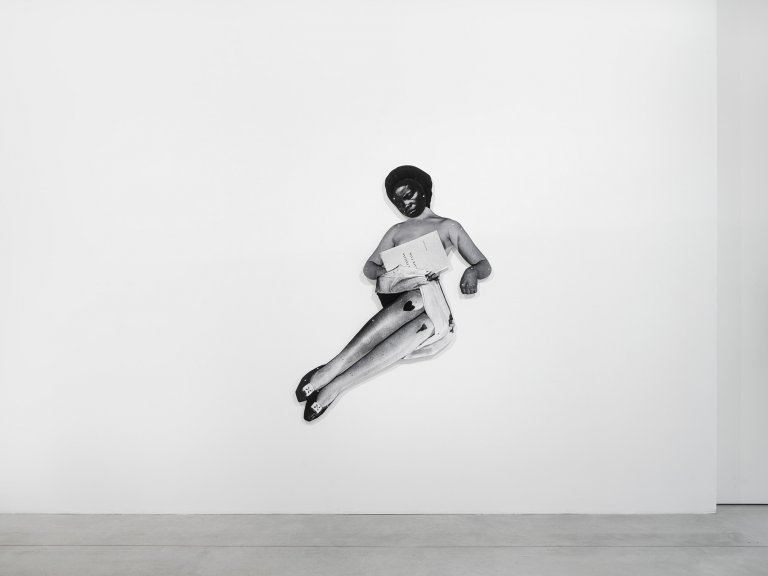
Frida Orupabo, Hearts and Diamonds, 2024, collage: pigment, print on acid-free cotton paper, mounting tape, split pins, mounted on aluminium, 147 x 125 cm, 57 7/8 x 49 1/4 in
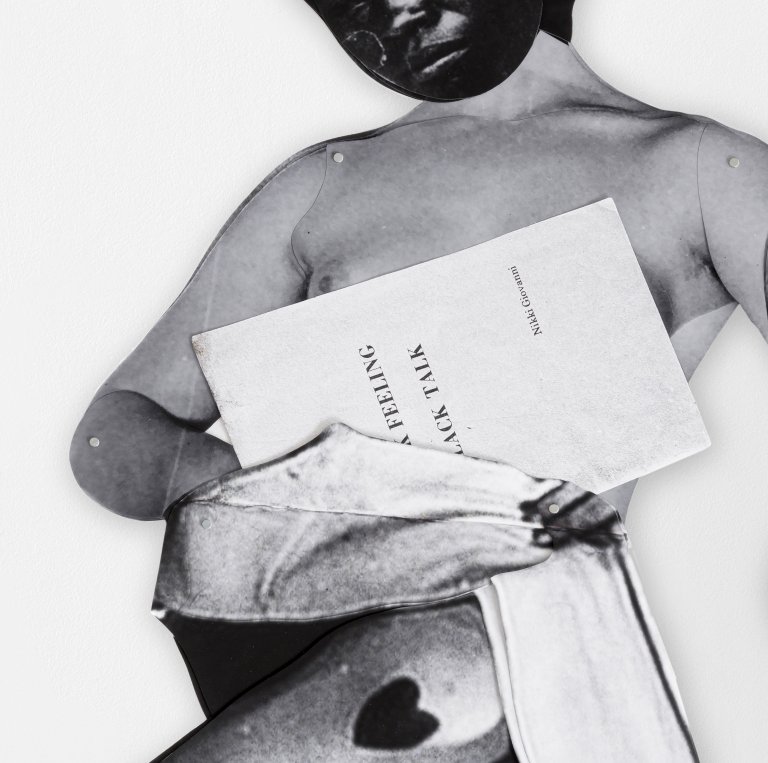
Frida Orupabo, Hearts and Diamonds, 2024, collage: pigment, print on acid-free cotton paper, mounting tape, split pins, mounted on aluminium, 147 x 125 cm, 57 7/8 x 49 1/4 in, detail
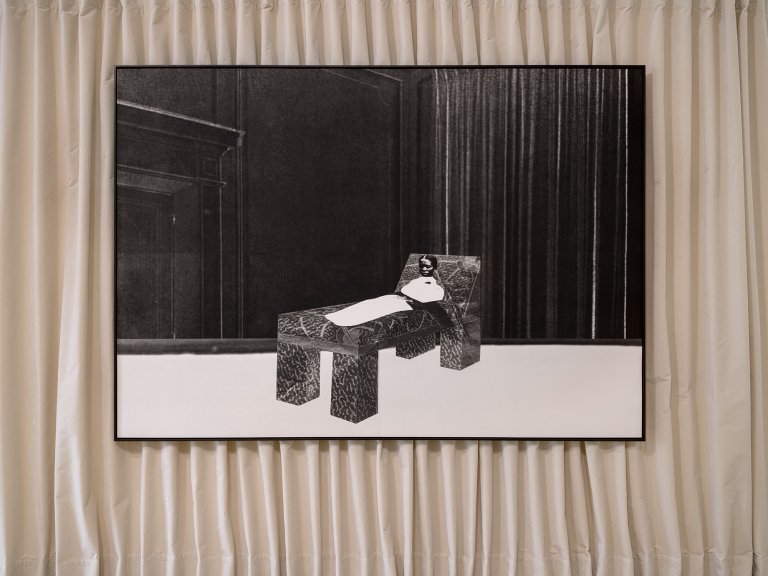
Frida Orupabo, Sickbed I, 2024, photogravure printed on four sheets of Somerset 410 g, 162 x 232 cm, 63 3/4 x 91 3/8 in, framed 164.6 x 232.6 cm, 64 3/4 x 91 5/8 in, edition of 8
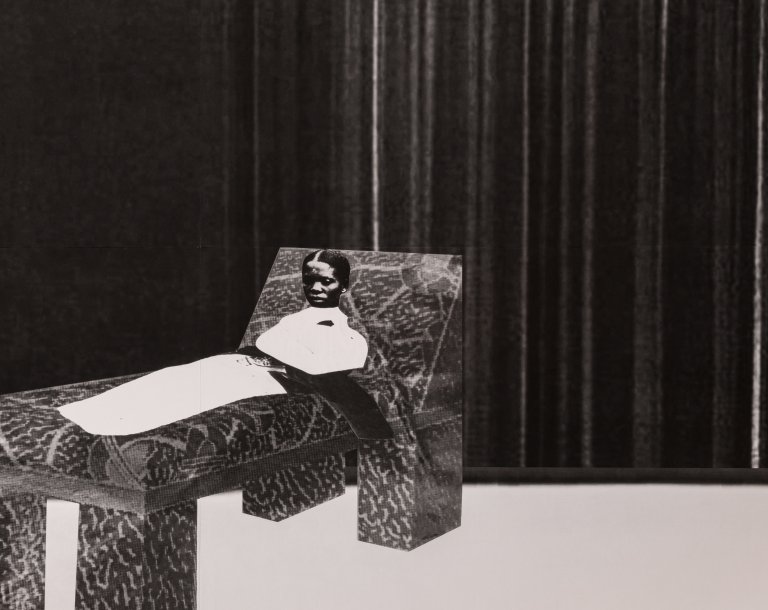
Frida Orupabo, Sickbed I, 2024, photogravure printed on four sheets of Somerset 410 g, 162 x 232 cm, 63 3/4 x 91 3/8 in, framed 164.6 x 232.6 cm, 64 3/4 x 91 5/8 in, edition of 8, detail
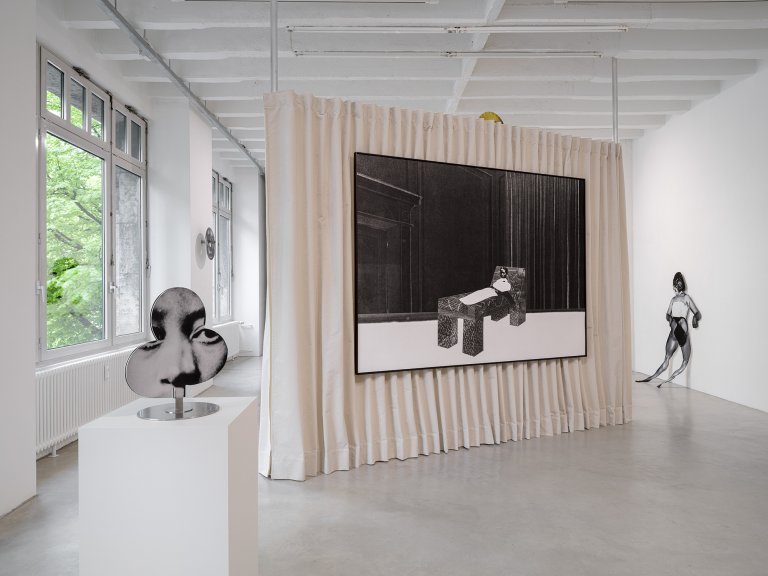
Installation view
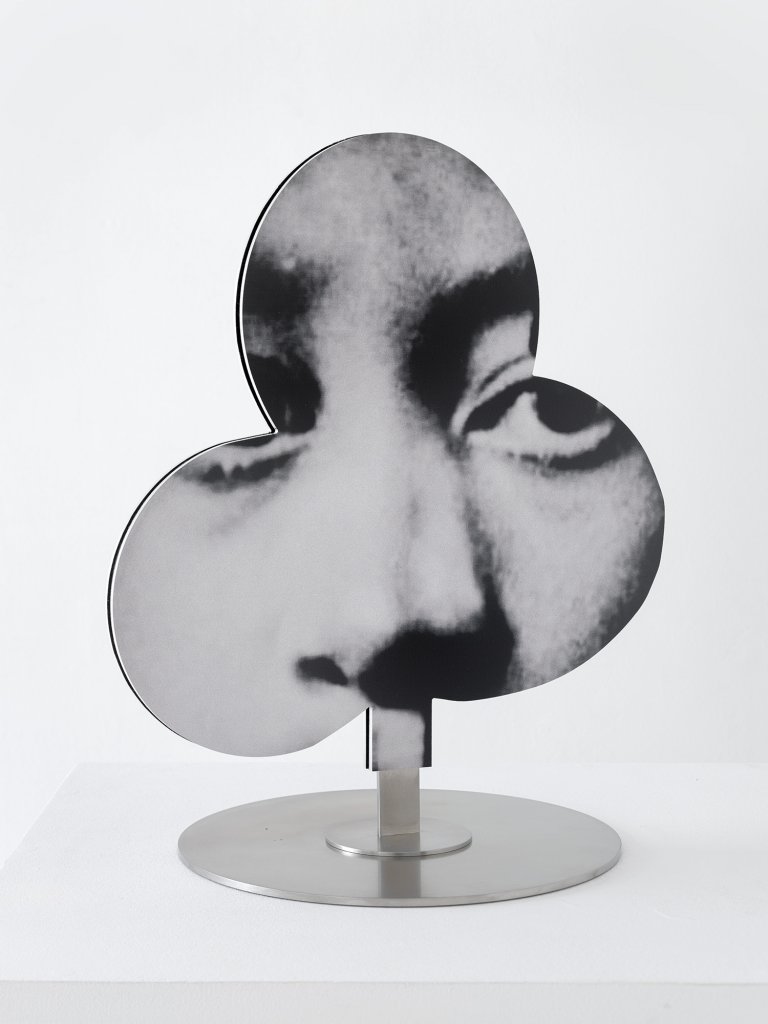
Frida Orupabo, On My Hands and Knees, 2024, CMYK print on anodised aluminium, stainless steel, 50 x 41 x 30 cm, 16 1/8 x 18 7/8 in
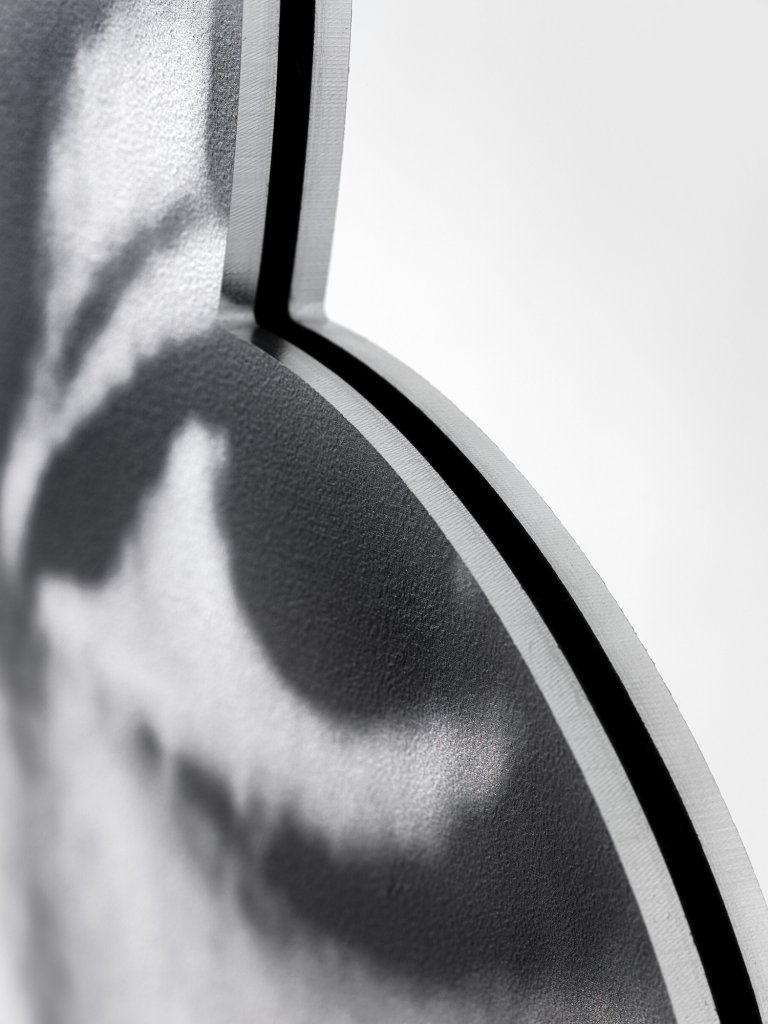
Frida Orupabo, On My Hands and Knees, 2024, CMYK print on anodised aluminium, stainless steel, 50 x 41 x 30 cm, 16 1/8 x 18 7/8 in, detail
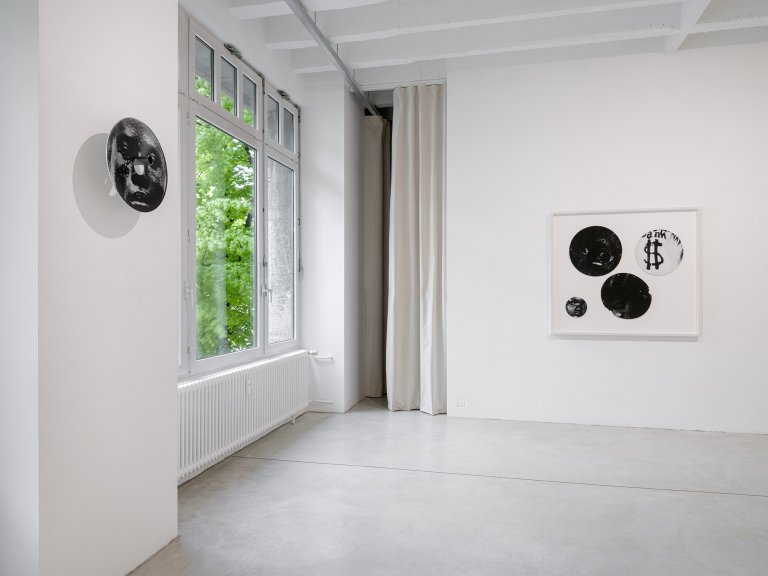
Installation view
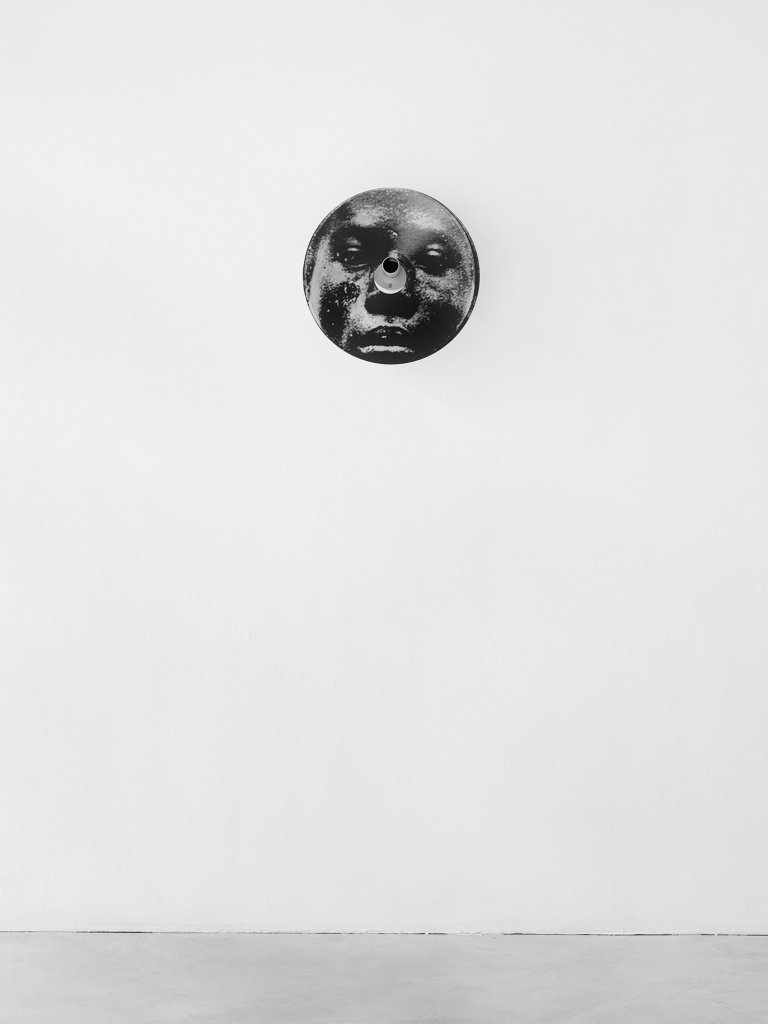
Frida Orupabo, Insult to Injury, 2024, CMYK print on anodised aluminium, stainless steel, 42 x 42 x 16.5 cm 16 1/2 x 16 1/2 x 6 1/2 in
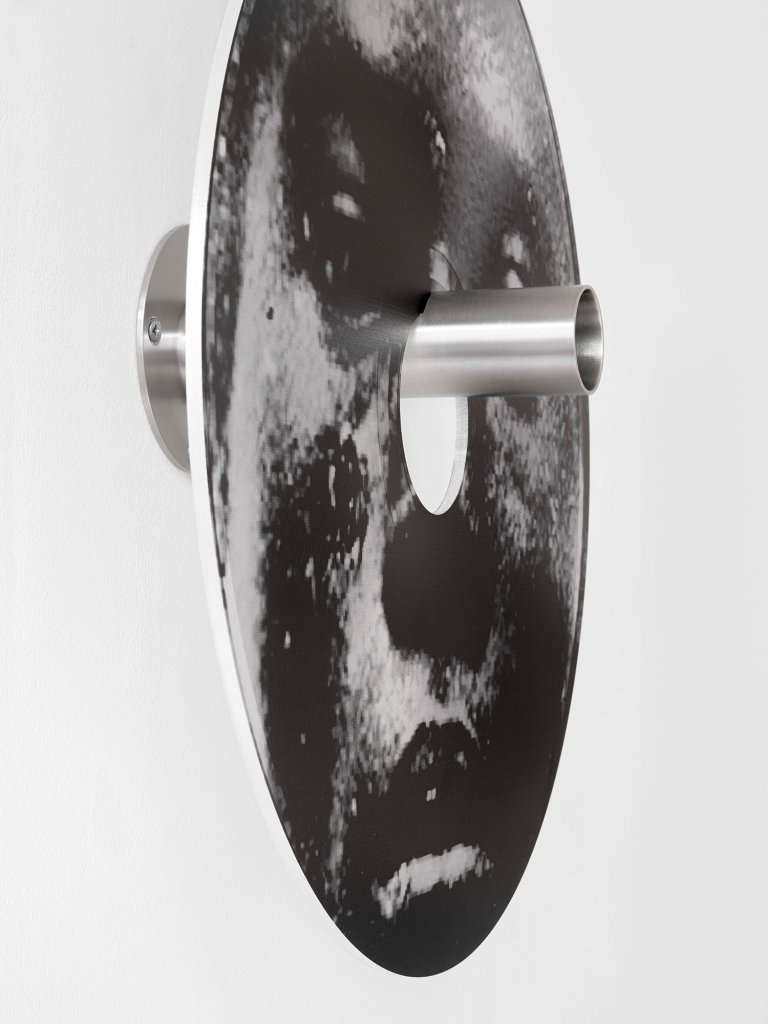
Frida Orupabo, Insult to Injury, 2024, CMYK print on anodised aluminium, stainless steel, 42 x 42 x 16.5 cm 16 1/2 x 16 1/2 x 6 1/2 in, detail
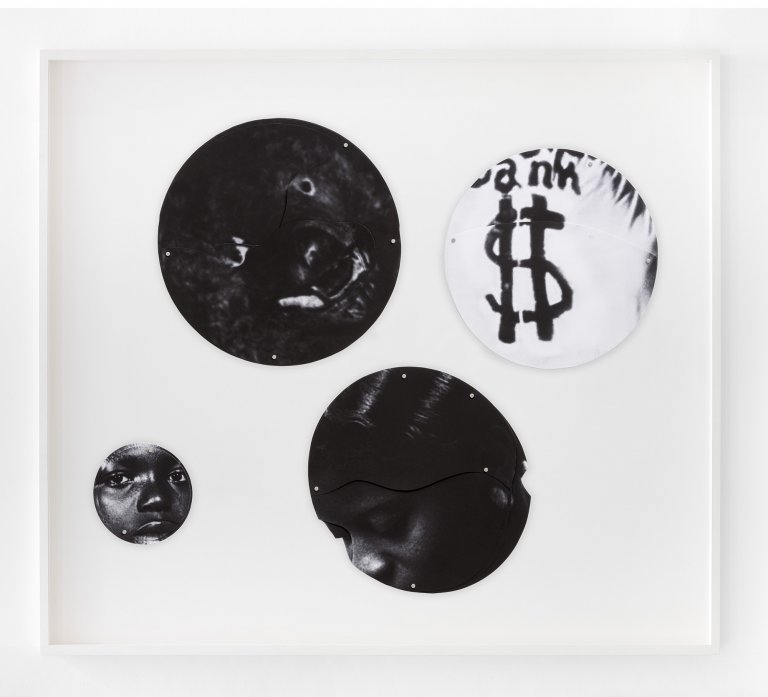
Frida Orupabo, The Inferno, collage: pigment print on acid-free cotton paper, mounting tape, framed 120.5 x 132.5 cm, 47 1/2 x 52 1/8 in
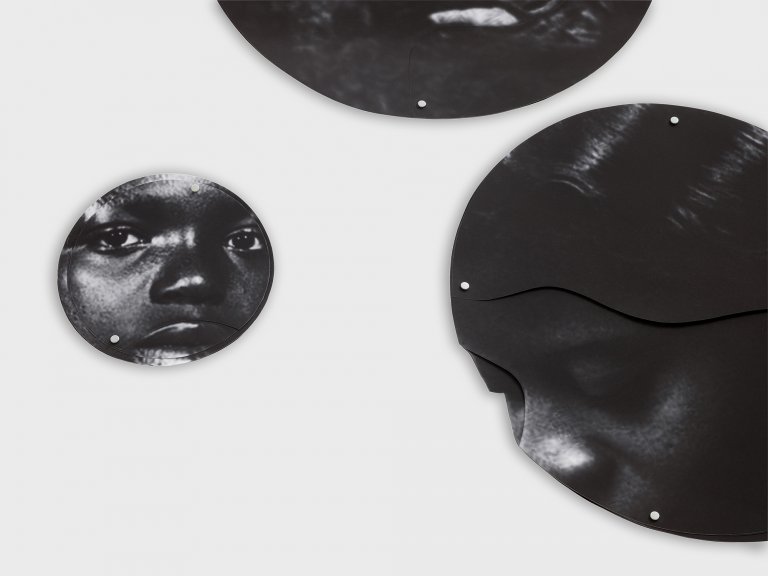
Frida Orupabo, The Inferno, 2024, collage: pigment print on acid-free cotton paper, mounting tape, framed 120.5 x 132.5 cm, 47 1/2 x 52 1/8 in, detail
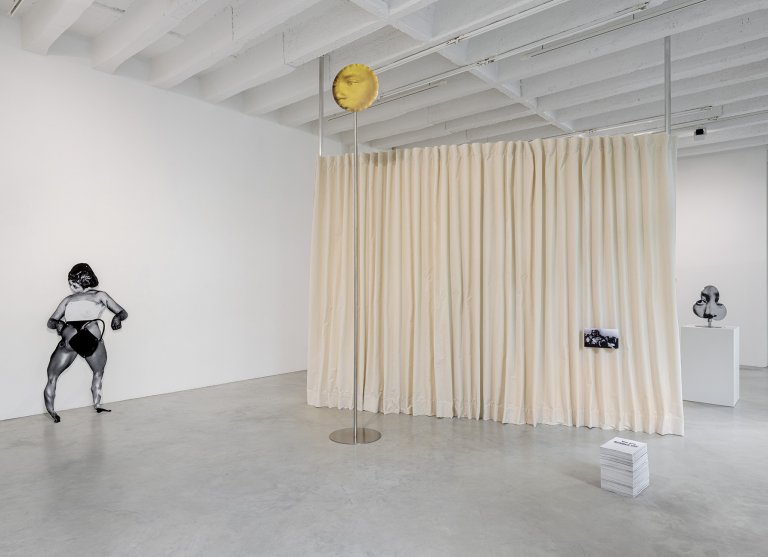
Installation view
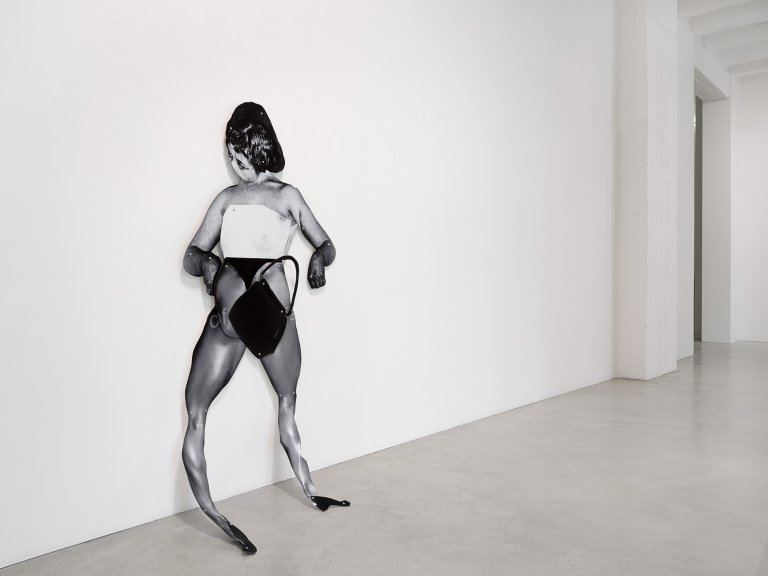
Frida Orupabo, Can We Pretend, 2024, collage: pigment print on acid-free cotton paper, mounting tape, split pins, mounted on aluminium, 180 x 76 cm, 70 7/8 x 29 7/8 in
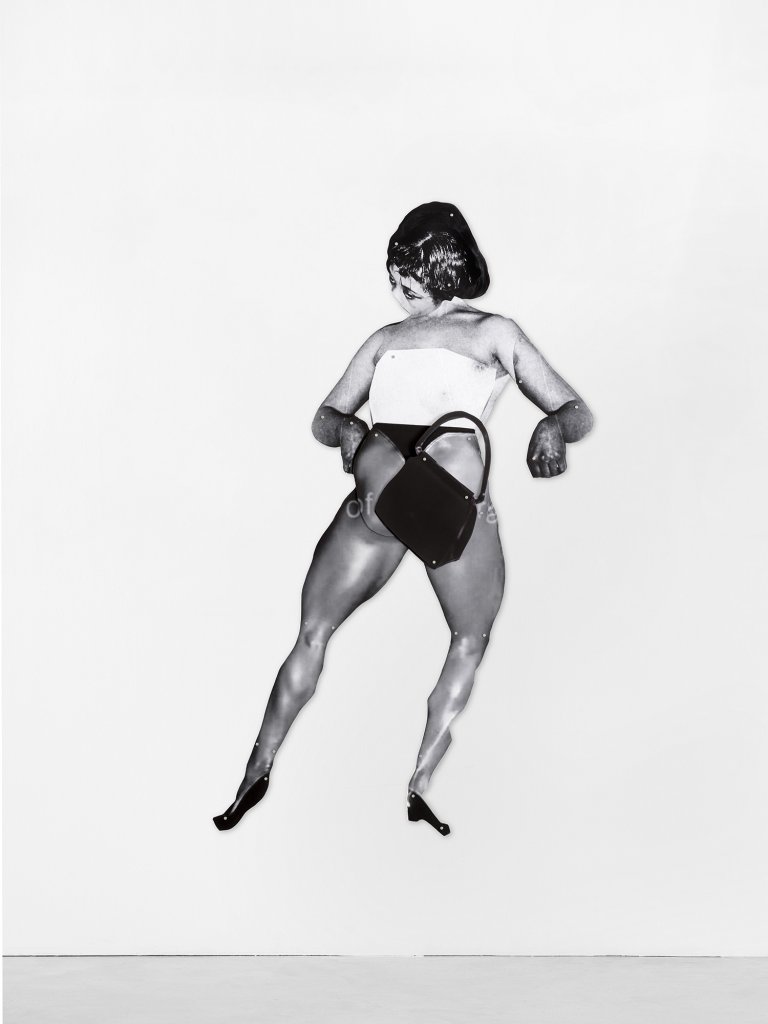
Frida Orupabo, Can We Pretend, 2024, collage: pigment print on acid-free cotton paper, mounting tape, split pins, mounted on aluminium, 180 x 76 cm, 70 7/8 x 29 7/8 in
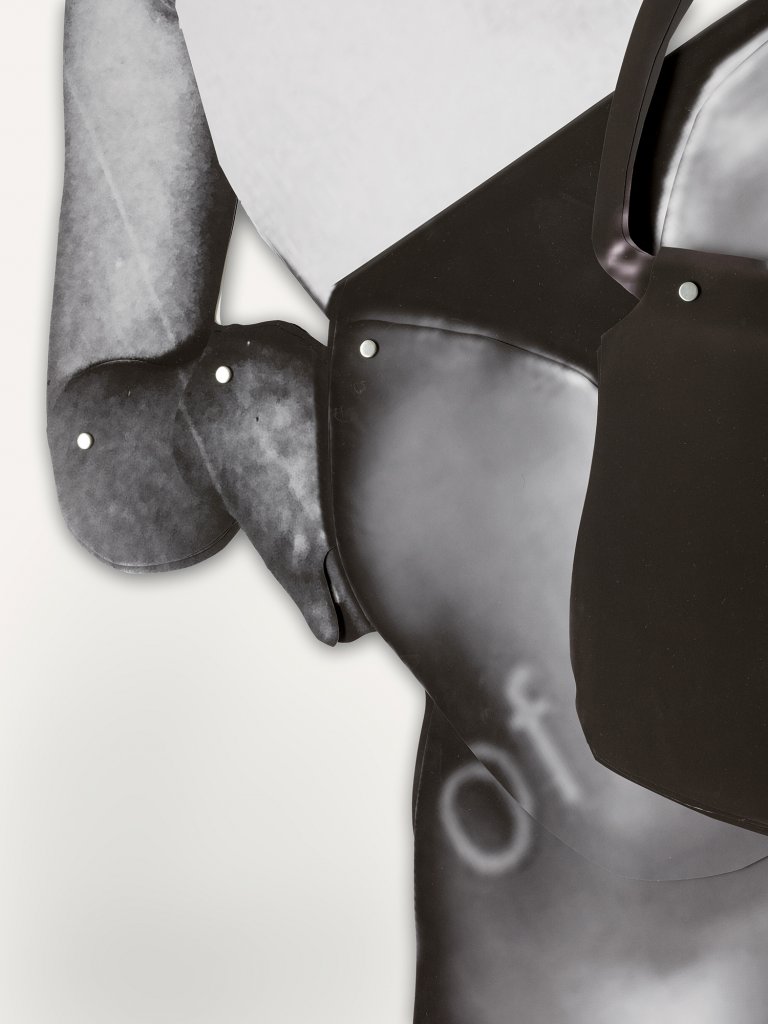
Frida Orupabo, Can We Pretend, 2024, collage: pigment print on acid-free cotton paper, mounting tape, split pins, mounted on aluminium, 180 x 76 cm, 70 7/8 x 29 7/8 in, detail
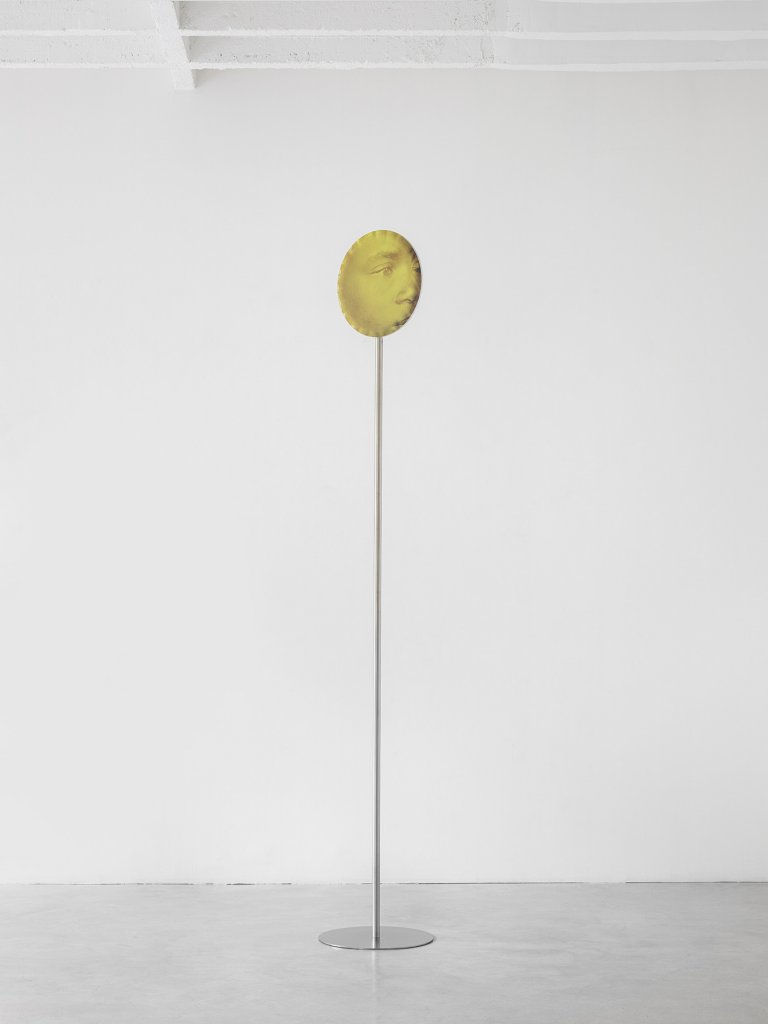
Frida Orupabo, Sunny, 2024, CMYK print on anodised aluminium, stainless steel, 280 | 190 x 45 x 45 cm 110 1/4 | 74 3/4 x 17 3/4 x 17 3/4 in
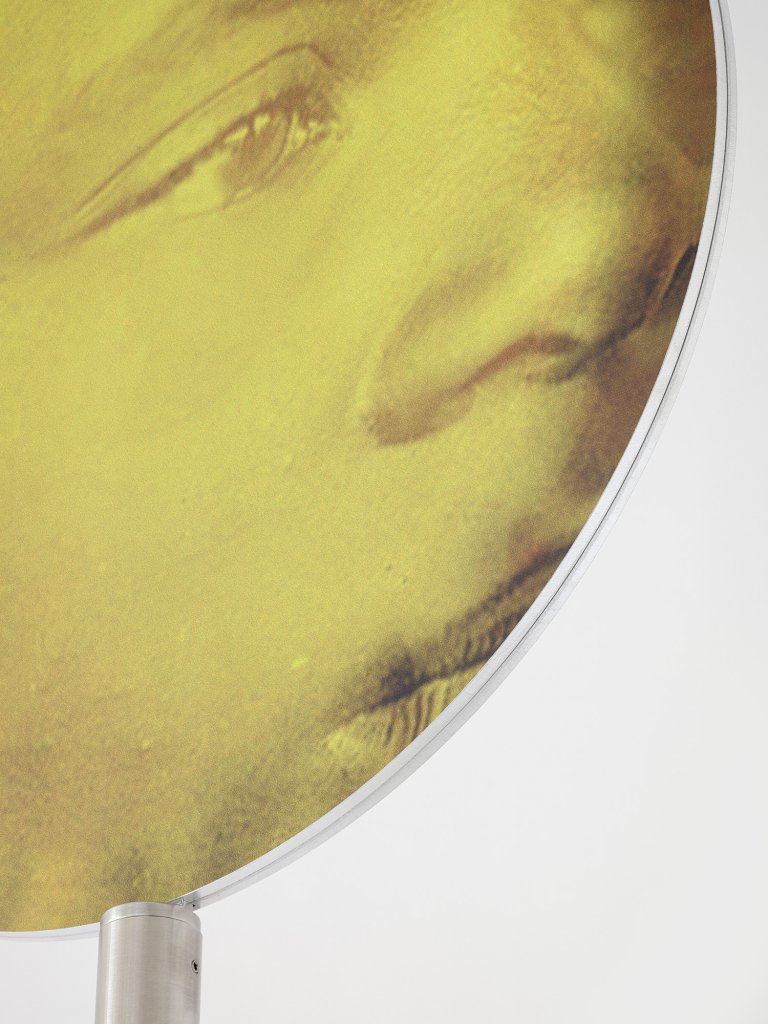
Frida Orupabo, Sunny, 2024, CMYK print on anodised aluminium, stainless steel, 280 | 190 x 45 x 45 cm 110 1/4 | 74 3/4 x 17 3/4 x 17 3/4 in, detail
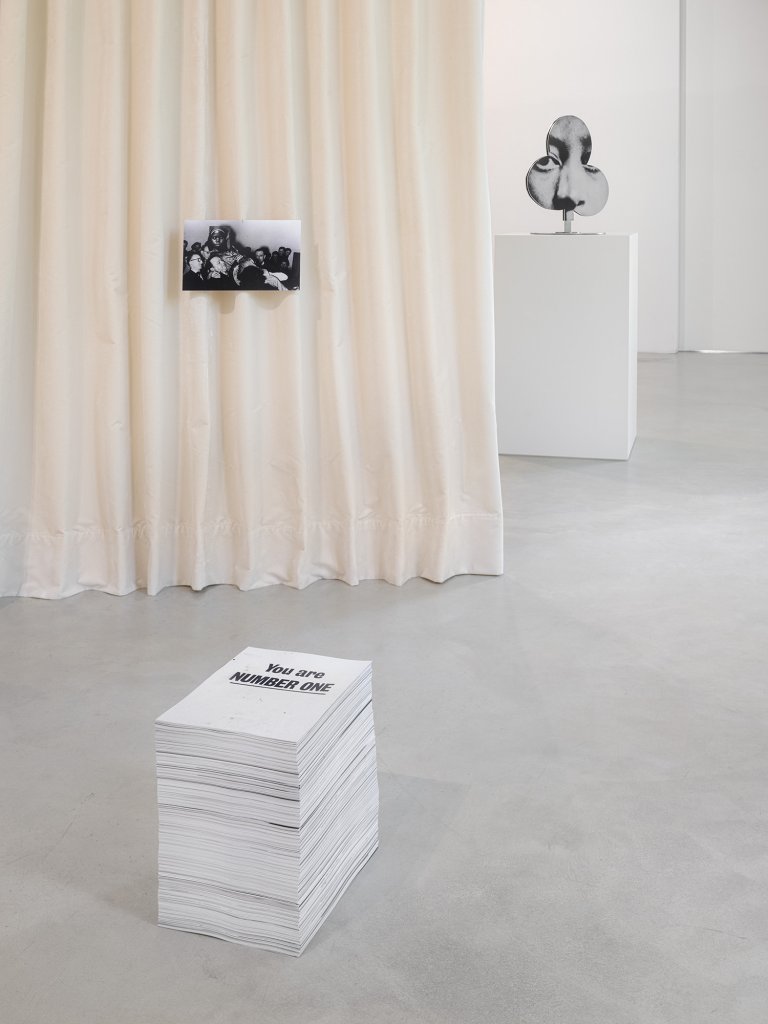
Installation view
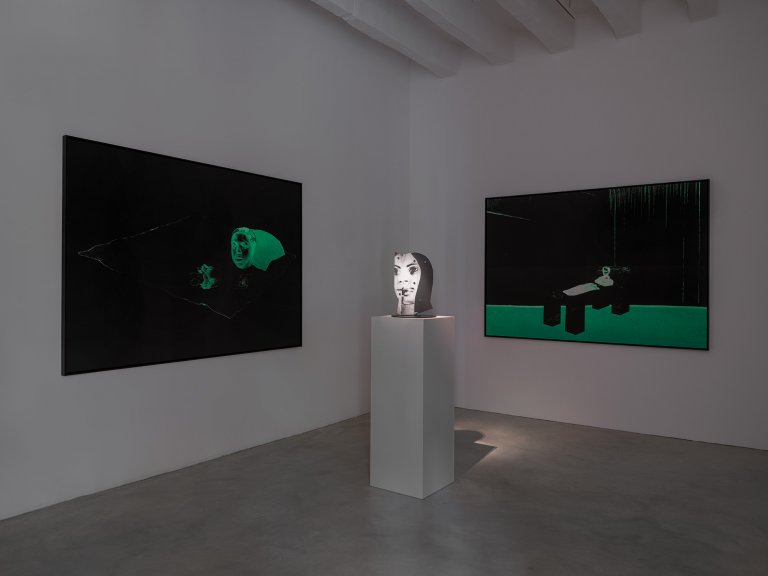
Installation view
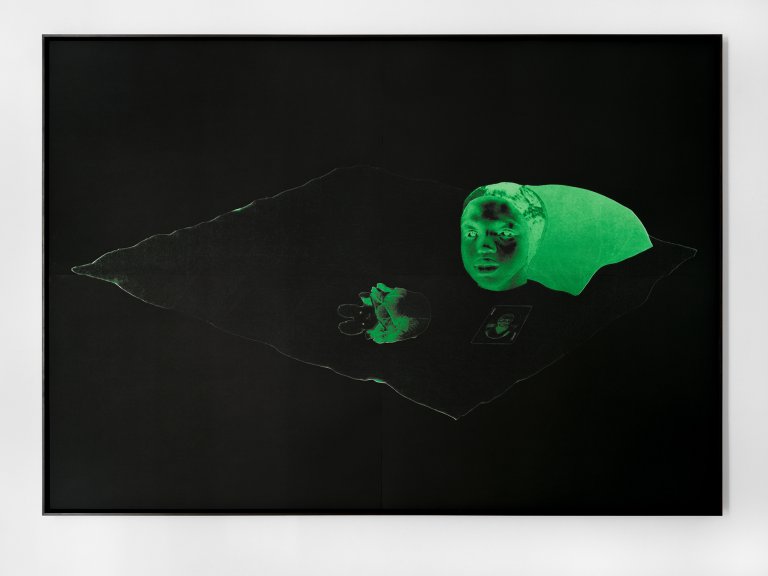
Frida Orupabo, Picnic, 2024, photogravure printed on four sheets of Somerset 410 g, 140.5 x 199.5 cm, 55 1/4 x 78 1/2 in, framed 143.1 x 202.1 cm, 56 3/8 x 79 5/8 in, edition of 8
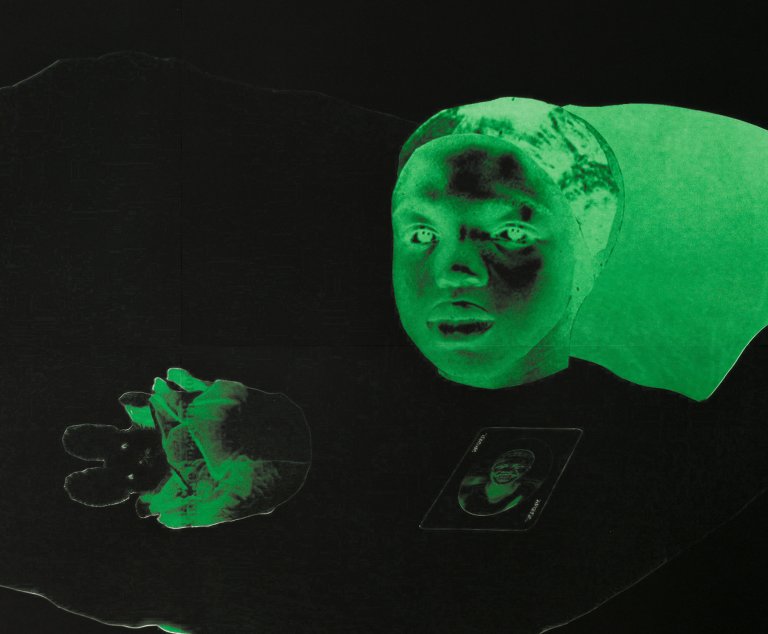
Frida Orupabo, Picnic, 2024, photogravure printed on four sheets of Somerset 410 g, 140.5 x 199.5 cm, 55 1/4 x 78 1/2 in, framed 143.1 x 202.1 cm, 56 3/8 x 79 5/8 in, edition of 8, detail
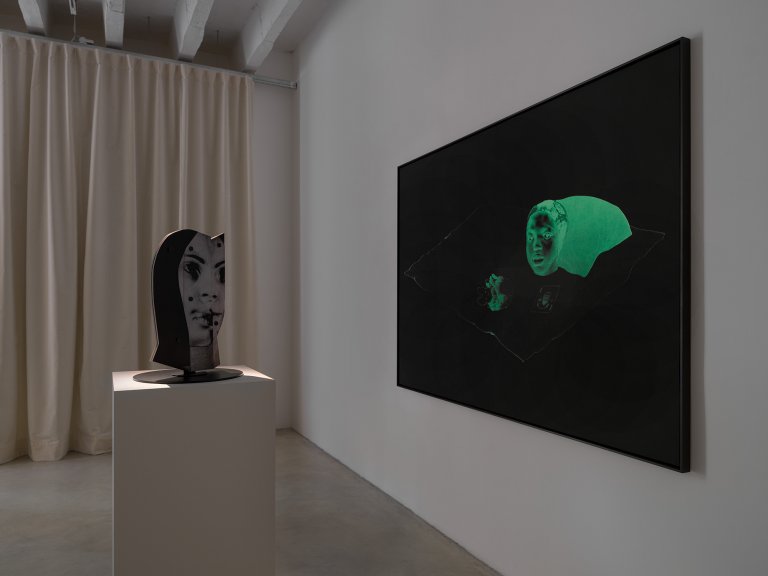
Installation view
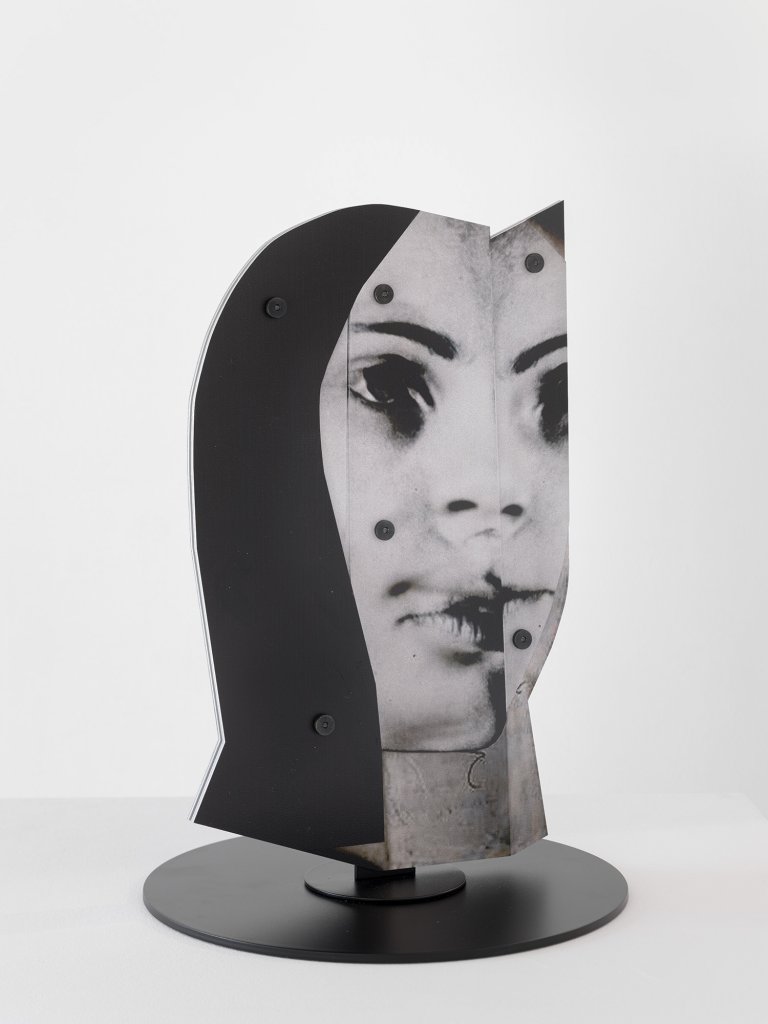
Frida Orupabo, Ada, 2024, CMYK print on anodised aluminium, spraypainted steel, 43 x 30 x 30 cm 16 7/8 x 11 3/4 x 11 3/4 in
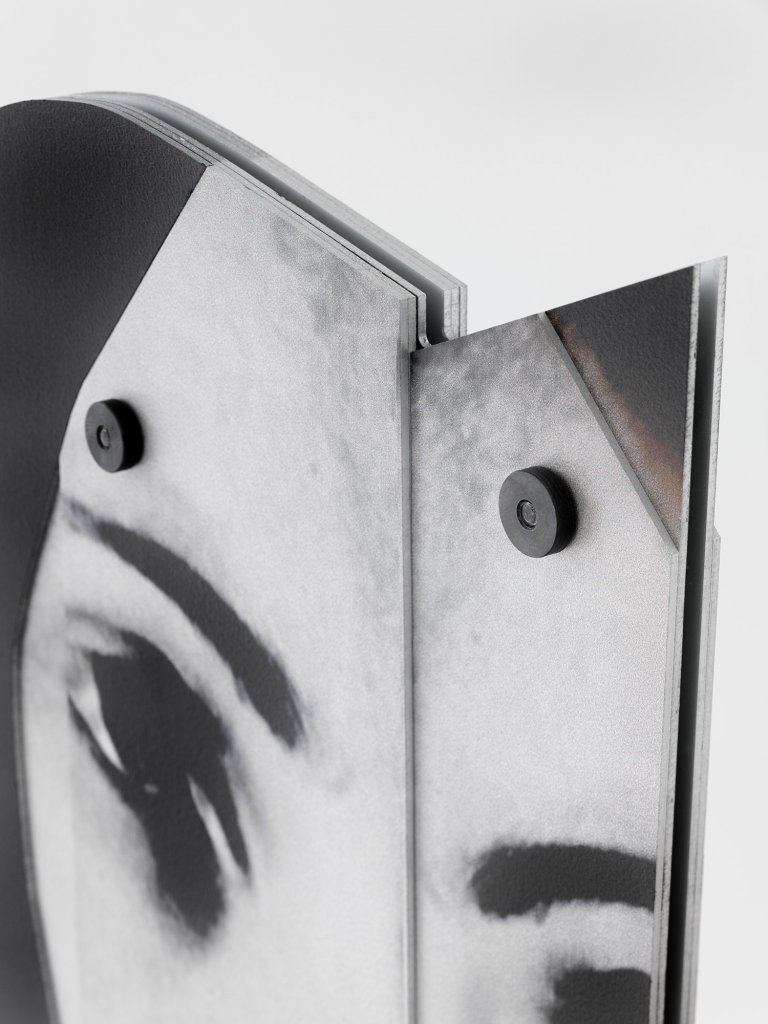
Frida Orupabo, Ada, 2024, CMYK print on anodised aluminium, spraypainted steel, 43 x 30 x 30 cm 16 7/8 x 11 3/4 x 11 3/4 in, detail
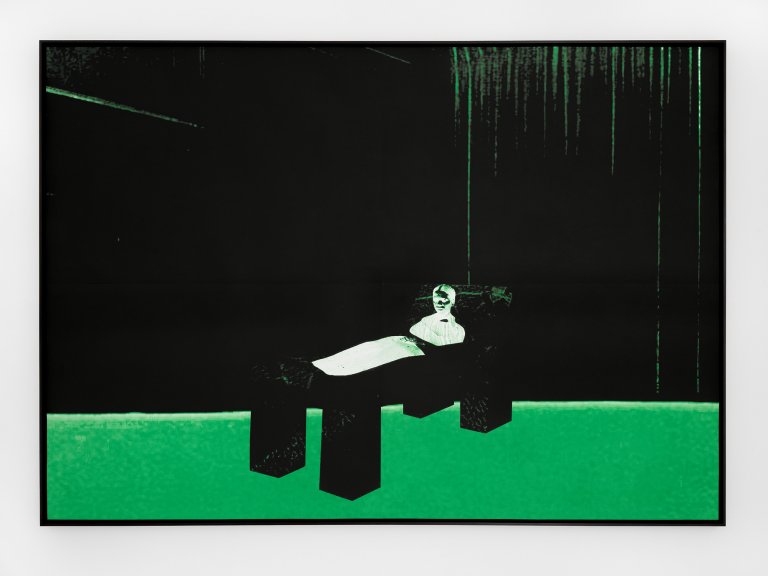
Frida Orupabo, Sickbed II, 2024, photogravure printed on four sheets of Somerset 410 g, 140.5 x 199.5 cm, 55 1/4 x 78 1/2 in, framed 143.1 x 202.1 cm, 56 3/8 x 79 5/8 in, edition of 8